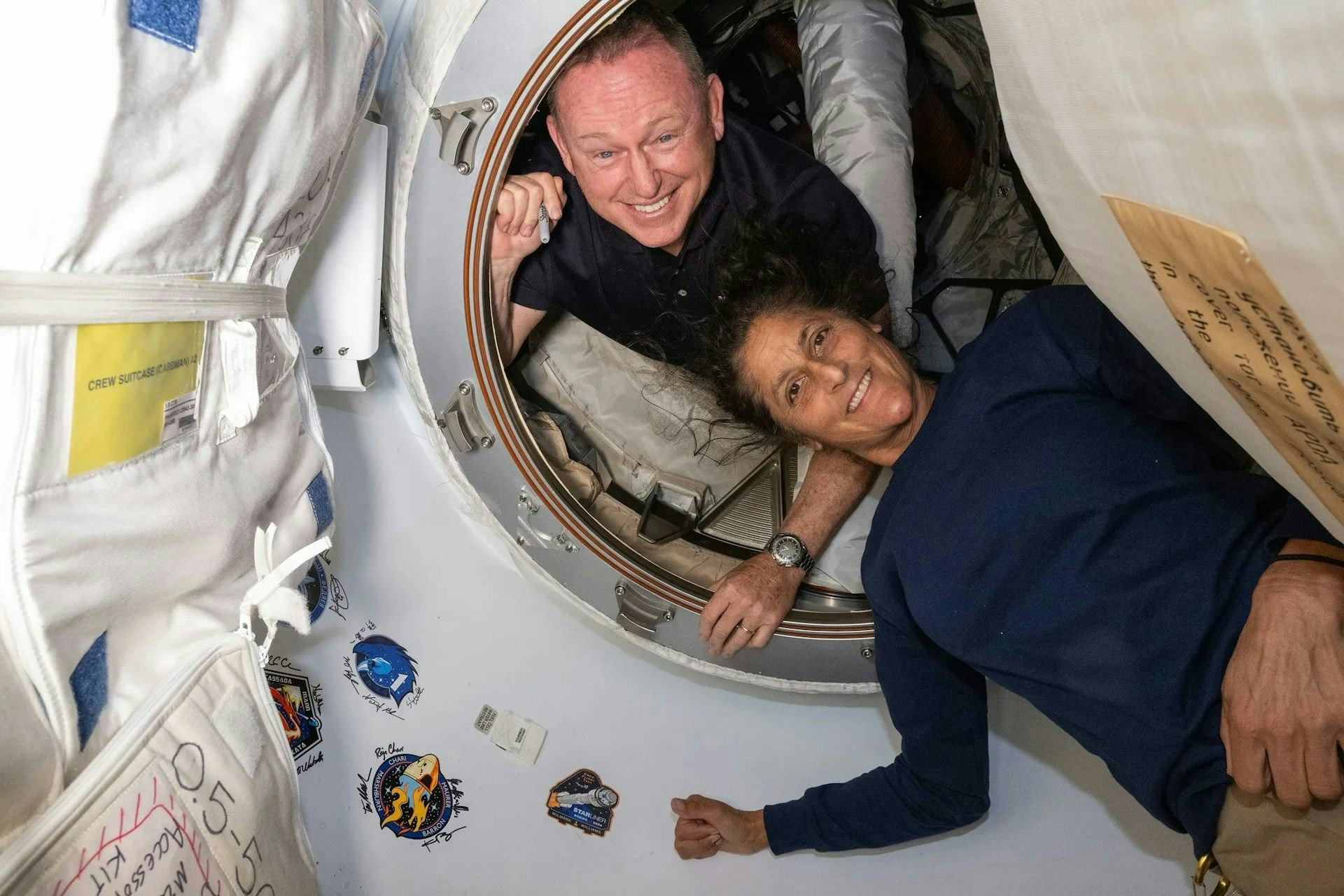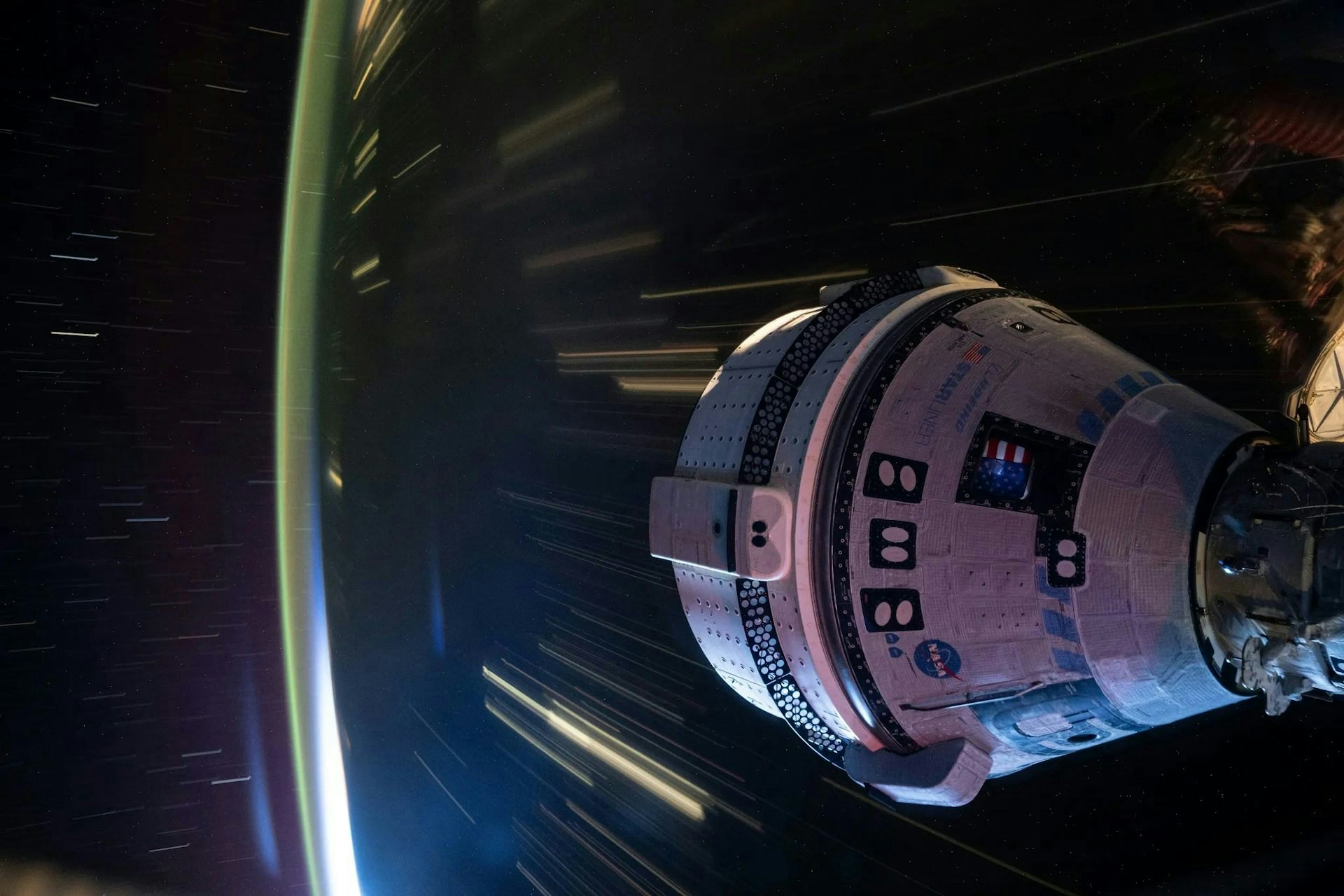
Two astronauts marooned in space may sound like the plot of a Hollywood blockbuster, but for two NASA crew members, it is now a reality. Commander Barry Wilmore and pilot Sunita Williams are currently in limbo on the International Space Station (ISS).
They arrived in the Boeing Starliner spacecraft — the first test of the spaceship with astronauts. Wilmore and Williams were supposed to stay on the ISS for around eight days and return on the same spacecraft. But there is now debate about the safety of Starliner after it experienced helium leaks and thruster problems on its way to the ISS.
In the coming days, NASA and Boeing may decide to clear Starliner to carry the astronauts back to Earth. This means their stay might not last too much longer. But if officials decide against Starliner, the astronauts face waiting an additional six months in orbit before returning. So how do astronauts cope with a potential six-month wait for a lift home?
Waiting for things is difficult at the best of times. Under normal circumstances, it is frustrating, stressful and anxiety-provoking. But in extreme situations, with high stakes, waiting can be purgatory.
Part of the reason that waiting is difficult is that it distorts our sense of time. Think of the last time you were waiting for a delayed train, test results or a text from a potential new partner. Did it fly by or drag? For most people, time spent waiting crawls at a glacial pace. As a result, delays and periods of anticipation often feel much longer than they actually are.
Waiting slows our perception of time because it changes the amount of time that we spend thinking about time. During normal daily life, we often ignore time, and our brains have a limited capacity. If time isn’t important, we simply don’t think about it, and this helps it to pass quickly.
When we are waiting, our desire to know when the wait is over increases how much we think about time. This “clock watching” can make the minutes and hours feel like they are passing at a snail’s pace. Stress, discomfort and pain exacerbate this effect, meaning that waiting in difficult situations can seem even longer.

Waiting also slows our perception of time because it is what we do and how we feel. Normal life is busy and full of ever-changing activities and interactions. The sudden need to wait halts the flow of life, often leaving us with nothing else to do, thus increasing levels of boredom and frustration.
In general, time filled with activity passes more quickly. We all got a taste of this during COVID lockdowns. When we were stuck inside, unable to see friends and engage in normal daily activities, the loss of routine and distractions caused time to drag for many.
For the astronauts stuck on the ISS, anxiety about when they will return, limited opportunities for activities and fewer opportunities to contact friends and families combine to make their wait to return home feel significantly longer than six months — if it should come to that.
However, as academics who research the effects of time on human psychology and biology, our ongoing work with crew members at research stations in Antarctica aims to shed light on whether waiting in extreme environments is different to waiting during normal daily life.
A year in Antarctica
While being stuck for six months on the ISS may sound like many people’s worst nightmare, it is not uncommon for scientists to spend long periods isolated and confined in extreme environments. Every year, organizations such as the Instituto Antártico Argentino (which uses the Belgrano II Antarctic station), the French Polar Institute and the Italian Antarctic Programme, in cooperation with the European Space Agency (which all use Antarctica’s Concordia station), send crews of people for up to 16 months to conduct research on the frozen continent.
During the March to October polar winter, teams spend six months in near darkness – and from May to August, in complete darkness – facing outside temperatures of up to -60C, wind speeds of 160 km/h (100 mph) and storms which prevent almost all outdoor activity. Limited internet coverage can also prevent constant communication with the outside world.
For the last year, we have researched how life in Antarctica influences people’s experience of time. Each month, we asked crew members how time felt like it was passing in comparison to before their mission. Trapped on base, with limited contact with the outside world, you might expect time to drag. However, our results suggest the opposite may be true.
Analysis of crew members’ experiences indicated that being constantly busy with complex tasks such as scientific research helped the time to pass swiftly, according to 80% of crew responses. Only 3% of responses indicated that time actually dragged, and these reports occurred when nights were long, and there was little to do.
These experiences may provide hope for those stuck on the ISS. Like life in an Antarctic station, these NASA astronauts have busy and mentally demanding lives. These factors may help time to pass quickly.
However, a key factor of their wait may be their ability to tolerate the uncertainty of when they will return. Wilmore and Williams will spend their time in a space equivalent to the inside of a Boeing 747 plane. However, better information about “when” things will happen and “why” delays are being incurred can help people tolerate waiting and reduce its impact on their wellbeing.
This article was originally published on The Conversation by Ruth Ogden at the Liverpool John Moores University and Daniel Eduardo Vigo at the Pontificia Universidad Católica de Argentina. Read the original article here.







